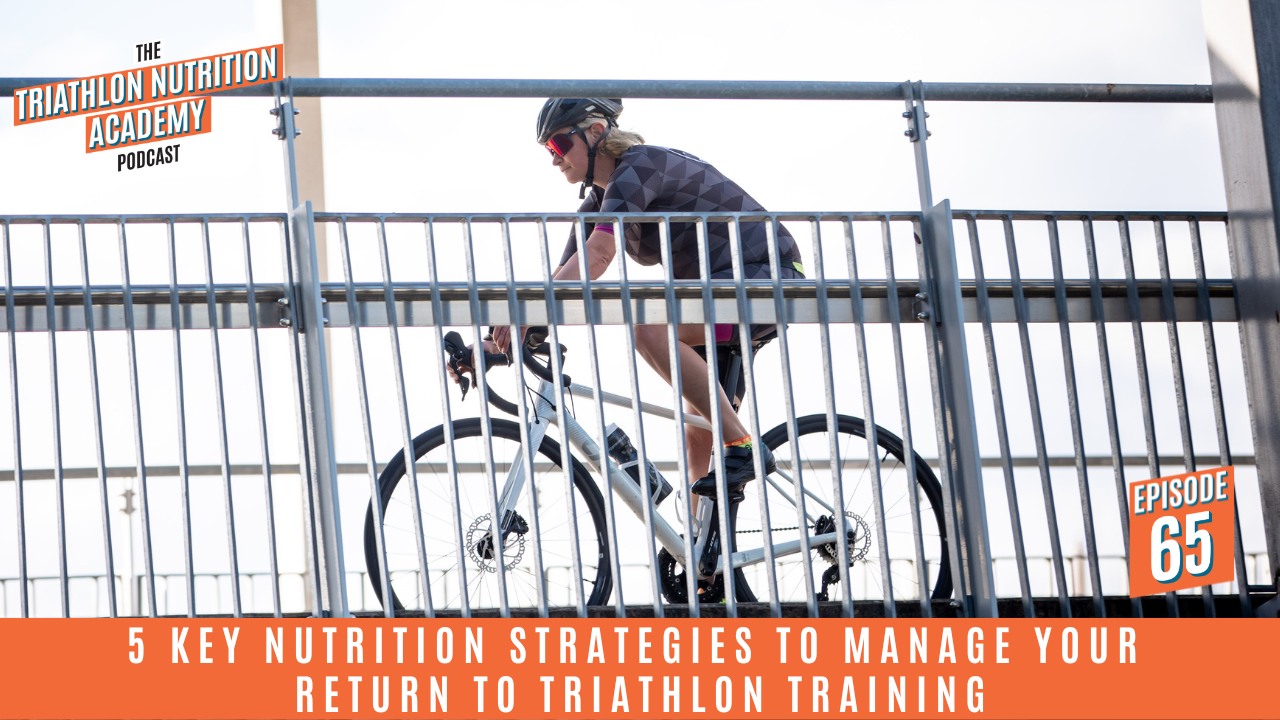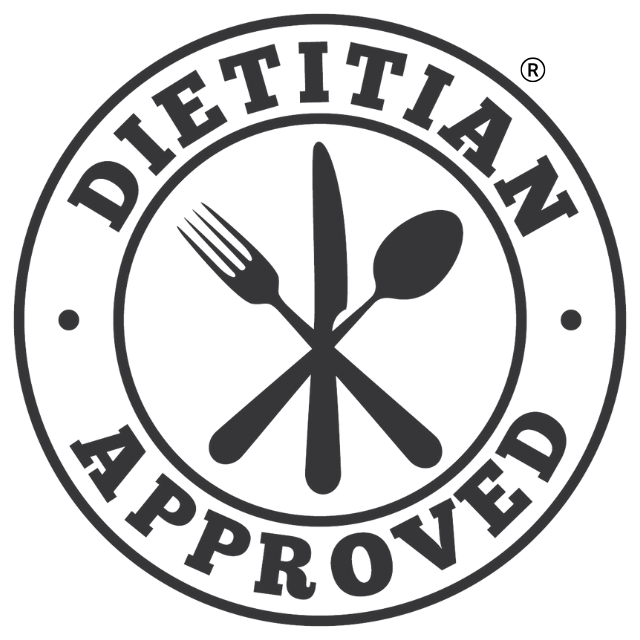
5 Key Nutrition Strategies to Manage Your Return to Triathlon Training
Oct 27, 2022If you're new to the sport or you’ve stepped away from triathlon training for any period of time, you may not realise how important managing your nutrition is for your return.
It's a big stress on your body to go from not doing anything to suddenly doing something again. So we need to be really mindful of our nutrition in this key window.
If you’ve stepped away from triathlon, perhaps because of:
- Sickness
- Injury
- You’ve just done a big key event – multiple weeks off
- Drama in your personal life that puts a handbrake on training
- Taking a break
- Holidays, OR
- You’re just starting out and you’re new to training
you need to ensure your transition back into training is managed correctly.
My Top 5 Strategies for Managing your 'Return' to Training
1. Match your Daily Fuelling to your Training Load
It's really important you quickly align your day to day nutrition to your change in training routine to ensure you're eating enough to support your overall energy needs. Just 3 days of not doing a good job of your nutrition is enough to impact your sex hormones and for females, drop a menstrual function for the month.
Appetite is a terrible indicator of your needs so work with a Sports Dietitian if you need help with a day-to-day training meal plan to support you through this phase.
- Ensure nutrition aligns to training load (periodisation)
- Appetite is not a good indicator
- Day 1, 2 3 are super important
2. Get enough protein and ensure it's distributed across the day
- With a 'return' to training, it's important to focus on getting the right building blocks in your diet.
- Ensure you're getting enough protein but also focus on distributing it evenly across the day. We don't want to have none for breakfast, a little for lunch and then too much at dinner.
- Fill your cup evenly throughout the day to maximise muscle protein synthesis and recovery.
3. Optimise your recovery nutrition
- Make sure you're doing a great job of your recovery nutrition will be key, particularly as you build into training.
- Individualised - Focus on ticking off the 4 R's:
- Repair (protein)
- Refuel (carbohydrate),
- Revitalise (vitamins & minerals) and
- Rehydrate (fluid - water is fine!)
- Be aggressive
- Aim to get your recovery meal in within 30 - 45 minutes to maximise the 'window of opportunity'.
4. Micronutrients are key!
- You don't need to take a supplement to ensure you're getting plenty of micronutrients in your diet. Instead, focus on eating a wide variety of reals foods with lots of plant-based diversity
- Each day tick off your 2 serves of fruit and 5 serves of veggies, getting enough fibre (at least 30g/day)
- Ensure you're meeting your Calcium need (important for bones and teeth – but also every single muscle contraction) and that you aren't deficient in Iron. Check out our earlier podcasts Episode #40 on calcium and Episode #33 on iron
- Include pre and probiotics in your diet
5. Utilise anti-inflammatory foods
As you re-establish a regular training rhythm, it's likely you'll have an increase in pro-inflammatory markers. Focus on getting plenty of omega-3's and polyphenols in your diet to help offset the oxidative damage and soak up these free radicals.
To dive deeper, listen to the Triathlon Nutrition Academy Podcast, EP 65 - 5 Key Nutrition Strategies to Manage Your Return to Triathlon Training
If you are interested in learning more about the Triathlon Nutrition Academy Program and what it can do for you, head HERE to join the waitlist for our next opening in January.
Don't miss a beat!
New moves, motivation, and classes delivered to your inbox.
We hate SPAM. We will never sell your information, for any reason.



